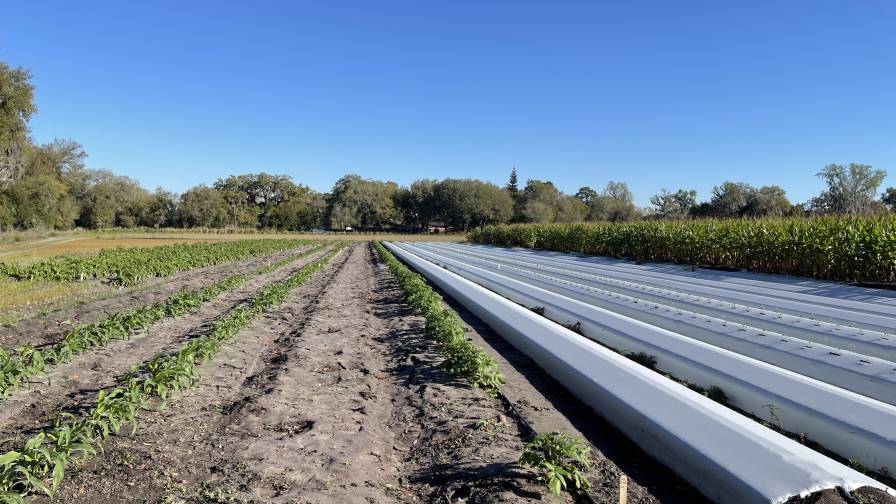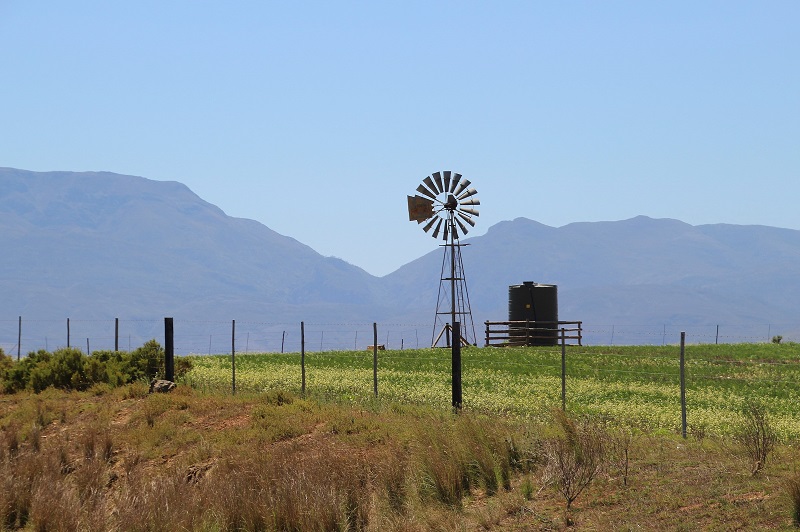2012 BASF Media Summit: Innovation As The Path To Sustainability
With world population figures expected to reach the 9 billion mark by the year 2050, the 2012 BASF Agricultural Solutions Media Summit, held June 4-6 at the Trump Towers complex in Chicago, IL, focused on technologies and sustainable practices that will enable producers to feed a growing population as farmable acres decrease significantly worldwide and crop inputs become more expensive and tightly regulated.
As the summit slogan (Innovation as the Path To Sustainability) proclaimed, BASF has committed its massive Research & Development resources (1.7 billion euro budgeted for 2012) to the sustainability in agriculture movement.
“We need very scientific and innovative concepts to make sure we can feed the world,” says BASF President of Biological & Effect Systems Research Harald Lauke. “However, it’s getting more complicated, and we need to continue expanding interdisciplinary research efforts. Unlike in the past, a lot of these problems all can’t be solved by a chemist.”
Innovating The Pipeline
For starters, BASF is devoting the largest chunk ever of its company-wide R&D budget, 36% to be exact, to crop protection and plant biotech innovations. In 2013, this approach will culminate in the release of several new herbicide and fungicide products.
Weed management innovations discussed included Kixor, which already covers a reported 20 million acres in North America and is useful in resistant wheats, corn, cotton and soybeans, and Engenia, the dicamba-tolerant crop system jointly developed with Monsanto set to launch in 2013/2014. Also announced was the South American release of Roundup-Ready alternative Cultivance, which will receive a full release in 2013.
Fungicides highlighted included new products from the Xemium family, which Lauke called “perhaps for us the most significant innovation of 2012,” and Initium, a second-generation Carboxymite and F500 combination.
Also creating quite a bit of buzz at the summit was a new bio-trait technology being developed for use in specialty crops like canola. Partnering with Cargill, the idea behind the technology is to identify genes that are key in the production of heart healthy EPA/DHA-omega-3 fatty acids, as canola plants by themselves do not produce high enough levels of the acids. Placing those genes into canola will produce commercial levels of EPA/DHA-omega-3 in canola oil, which could then be incorporated into other foods.
Managing Yield And Stress
After last season’s drought-like conditions throughout August and September in the Corn Belt, managing stress and ensuring yield consistency is a top priority for growers.
BASF and project partner Monsanto’s answer to that concern is what Lauke called “the company’s most advanced product to date,” DroughtGuard Hybrids, which reportedly will be the first drought-tolerant trait to hit the market in 2013. The partnership has already released the technology for 250 on-farm trials throughout the Western Corn Belt, and early signs are encouraging.
“I can’t wait to get my hands on hybrids that are drought-tolerant, even in the rain-fed Corn Belt because if water is not a limitation, then we should really be able to push those yields,” says Dr. Fred Below, University of Illinois professor of crop physiology. “Drought-tolerant hybrids are necessary throughout the Corn Belt and that’s what it’s going to take to increase production efficiency.”
As for yield management, BASF has launched two unique technology platforms, TraitMill and Metanomics, for phenotype screening and metabolite profiling. In the most basic of explanations, TraitMill will examine the outside of plants, searching for the strongest phenotypes for selective breeding. Metanomics looks at the plants internal chemistry, hoping to profile the plants with the strongest metabolisms for selective breeding.
Along with expanding its plant biotech pipeline, BASF is also focusing on expanding its corporate partnerships beyond the Monsantos. This year alone the company plans to partner with CTC, KWS, Bayer, Cargill and Embrapa on a number of biotech projects.
“For us, teaming up with partners is critical for project success,” says Peter Eckes, President of BASF Plant Science. “The challenges we face as a company going forward are truly opportunities to grow and continue to focus on delivering better yield and stress management to our producers.”
Functional Crop Care And Ag Balance
BASF is also implementing a new plant management strategy. Dubbed Functional Crop Care, it pledges to deliver solutions “beyond pure crop protection,” focusing on non-traditional areas of concern such as plant health, nitrogen management and water management.
The goal of the program, according to Lauke, is to “educate and support growers to help them increase their marketable yields sustainably.”
Ag Balance, which launched in 2011, is “a holistic method developed by BASF to systematically assess sustainability in agriculture.” The analysis program compares different farm operations, taking into account three dimensions – environment, society and economy – to give a weighted “sustainability score.”
It was through the Ag Balance program that BASF discovered, via a 2010 study of Iowa corn production, that the state’s corn growers were 42% more sustainable than they were back at the start of the century. The study also found Iowa corn production in 2010 to be 30% more economically efficient, 33% more environmentally sound and 57% more efficient with water resources than it had been in 2000.
The Role For Retailers
As the industry prepares to ramp-up its production levels higher than at any other time in history, retailers are going to continue to play a key role in helping growers identify and implement sustainable practices.
“I think the retailer is a key partner and provider to grower-customers for a wide range of products and services, so from our standpoint we can certainly see more partnership opportunities,” says Nevin McDougall, senior vice president, BASF Crop Protection, North America. “And as we look at trying to implement more sustainable practices and introduce new technologies that really help drive efficiencies and greater productivity, in many cases the retailer is the front gate to that experience and that exchange.”
Kip Tom, a producer and the managing member of Tom Farms in northeast Indiana, sees the role of ag retailers evolving in the near future.
“I think there needs to be more open conversation between ag retailers and who they perceive will be their customers 5 to 10 years down the road,” says Tom. “I don’t think there are enough of those conversations taking place. They (retailers) are going to have to learn to work with that larger producer who owns a bigger chunk of his own supply chain, so that’s going to be a challenge.”






